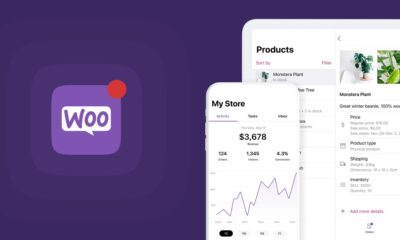Technology
After Google Chrome’s Ad Blocker, What’s Next For Its Obsession with Web Performance?
Slowly and methodically, Google is promoting – some would say forcing – its vision of a faster, better web experience. The latest round: a report it will include a unique ad blocker in its Chrome browser – one that blocks ad formats identified by the Coalition for Better Ads as negatively impacting the web experience. […]


Slowly and methodically, Google is promoting – some would say forcing – its vision of a faster, better web experience. The latest round: a report it will include a unique ad blocker in its Chrome browser – one that blocks ad formats identified by the Coalition for Better Ads as negatively impacting the web experience. You know the type: video ads that play without your OK; pop-ups and interstitial that make it difficult to see content on the screen – the real annoying ones.
Competitive issues will come under scrutiny, as we’re certain that Google ads will not be in those blocked categories. That concern aside, we applaud what Google is trying to accomplish. It’s the latest in a long list of Google initiatives: lowering page ranks of slow sites, penalizing sites not optimized for mobile, and offering website performance tools designed to make your site faster.
Google is doing is what the ad industry and publishers should be handling on their own – self-regulation that integrates ads appropriately and protects the user experience. The growth in ad blocking is a direct result of websites failing to do this on their own. Instead technologists are taking the lead with ad blockers, and the consumer is more than happy to use them.


How Fast with an Ad Blocker?
We’ve done several studies of website load time across multiple industries. One major news site loaded 40% faster with an ad blocker. A travel aggregation loaded 33% faster. Some sites are using optimization techniques to lessen the performance hit of ads and that’s a good thing. But overall, ad blockers do work – you do get a faster, slicker web experience.
However we have also seen a few notable anomalies: one study showed that sites with few or no ads can actually load more slowly with an ad blocker engaged – the opposite of its intended effect. One major US bank loaded 38% more slowly with an ad blocker.
Then there’s the latest trend – software that blocks ad blockers. Catch-point will soon be taking a look at the performance impact of these technologies. But the overall lesson is clear: the solution isn’t more hacks like 30x redirects, blocking of content while a JavaScript executes or other workarounds that can lead to even poorer performance than if ads are simply left alone.


What’s Next?
Perhaps the answer is not to block ad blockers, but for websites to deal head-on with the problem: getting creative on how to integrate ads so they’re not disruptive or annoying, and actually making them an additive part of the user experience. Several companies are already doing this by recognizing an ad blocked browser and offering “ad light” experiences for disabling it for that particular site. The rise in native advertising is another positive development. Other creative ideas will certainly emerge.
Publishers need to pay attention to the most important customer service characteristic of the digital age: a stellar user experience which includes fast load times that don’t force a customer to wait. I will bet that more consumers will be willing to look at your ads if you provide blazing fast load times. But if your site is slow, more users will abandon it. It’s ironic that an ad strategy designed to monetize a site can lead to less revenue.
While many web publishers are frustrated with the ad block trend, it’s up to them to take more control of the core issue. If they don’t, the technologists will come up with yet another piece of software that further threatens the necessary ad revenue upon which so many businesses depend.



 General2 months ago
General2 months agoWhat Is Smart Construction? A Beginner’s Guide



 Technology1 month ago
Technology1 month agoHow to Send WooCommerce SMS Notifications for Orders





 Technology1 month ago
Technology1 month ago7 Essential TikTok Metrics to Track for Higher TikTok Views in 2025

 Model3 weeks ago
Model3 weeks agoTiffany Stratton: Biography, Wiki, Age, WWE Career, Net Worth, Before Fame, Boyfriend



 Technology4 weeks ago
Technology4 weeks agoTop 5 Tips for Using File Uploads in Your WooCommerce Store Efficiently

 Technology3 weeks ago
Technology3 weeks agoWhy Airlines Are Using Virtual Reality Services for Pilot Training



 General4 weeks ago
General4 weeks agoThe Hidden Costs of a DUI & How a Lawyer Can Help You Avoid Them





 Technology3 weeks ago
Technology3 weeks agoExploring TikTok AI: My Experience Making a Video With Only Artificial Intelligence




1 Comment
You must be logged in to post a comment Login